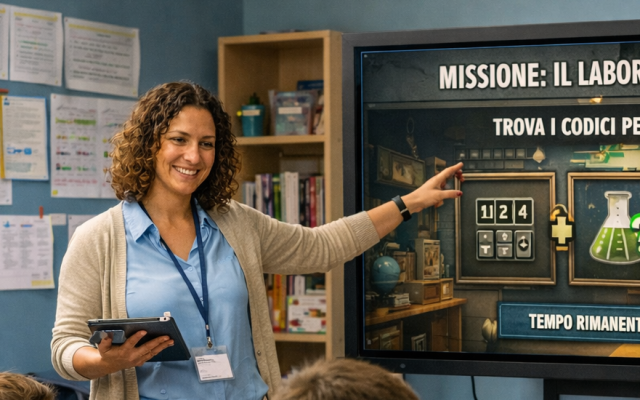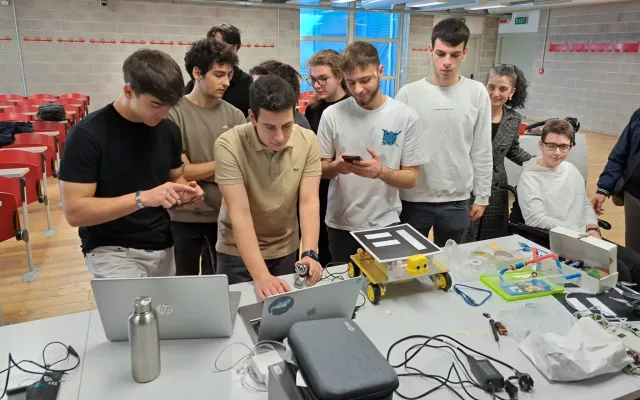3 min.
402 participants, 81 finalists, 19 countries. These are the numbers of the 6th edition of the Global Junior Challenge, the international competition that rewards the innovative use of technology for 21st century education and social inclusion. Event Programme and Project Descriptions: www.gjc.it
From October 17-19, Rome will host the final event of the Global Junior Challenge. The event is promoted by Roma Capitale and organized by the Fondazione Mondo Digitale under the high patronage of the President of the Italian Republic with the patronage of the Italian Ministry of Foreign Affairs and in collaboration with the United Nations Alliance of Civilizations (UNAOC), Legambiente and Intel Italia. The three-day event presents a full calendar of activities in three locations: Don Gioacchino Rey Primary School, Città Educativa and Campidoglio, the Rome City Hall. On October 17-18, there will be a showcase of finalist projects, cooperation laboratories for the Fair of International of Solidary Creativity, debates (including an opening debated with Prof. Tullio De Mauro), an international networking session with 13 countries and a musical evening. On the morning of October 19, the Awards Ceremony will be held in the Sala della Protomoteca of the Campidoglio with Rome May Giovanni Alemanno.
The protagonists of the GJC are schools, associations, public and private institutions, cooperatives, universities, companies and individuals from any walk of life that have developed projects the employ new technology (Internet, virtual reality and multimedia systems) for educational objectives. Projects have been submitted from around the world, from Nepal to Peru and the Malawi. The finalist projects come from 19 countries with many transnational partnerships. Even Africa has raised its voice loud and clear; in fact, many of the African projects come from countries with very low incomes. Schools, representing 80% of the submitted projects, are the greatest contributors, followed by non-profit associations and public institutions.
An international jury composed of 51 innovation and social inclusion experts has selected 81 finalist projects from the 402 submitted candidatures. The 21st Century Education area has projects in the following categories: up to 10 years old, up to 15 years old, up to 18 years old, up to 29 years old, ICT for Environmental Sustainability (in collaboration with Legambiente) and ICT for Youth Insertion on the Job Market. The Social Inclusion area includes the following category: ICT for the Integration of Migrants and Refugees (in collaborations with UNAOC – the United National Alliance of Civilizations).
Five types of awards will be presented by Rome Deputee Mayor Sveva Belviso and Fondazione Mondo Digitale President Gennaro Sangiuliano. The Global Junior Challenge Award (a medal of the Etruscan she-wolf with Romulus and Remus, the symbol of the foundation of the City of Rome) will be presented to the winning projects selected amongst all competing projects. The President of the Italian Republic Award (six silver medals) will be presented to the most innovative projects presented by Italian schools. The Small Fund Award will be presented to projects from developing countries. The i-Prof Award will be presented by Intel Italia to the teacher who has designed and developed the most innovative idea. The i-Prof Award includes a free trip and participation in the Vienna UNAOC Forum.
An ambitious project like the GJC relies on the collaboration of a large network of partnerships, including that of La Scuola Possibile, the event media partner.
For further information:
• Poster
• Concert



